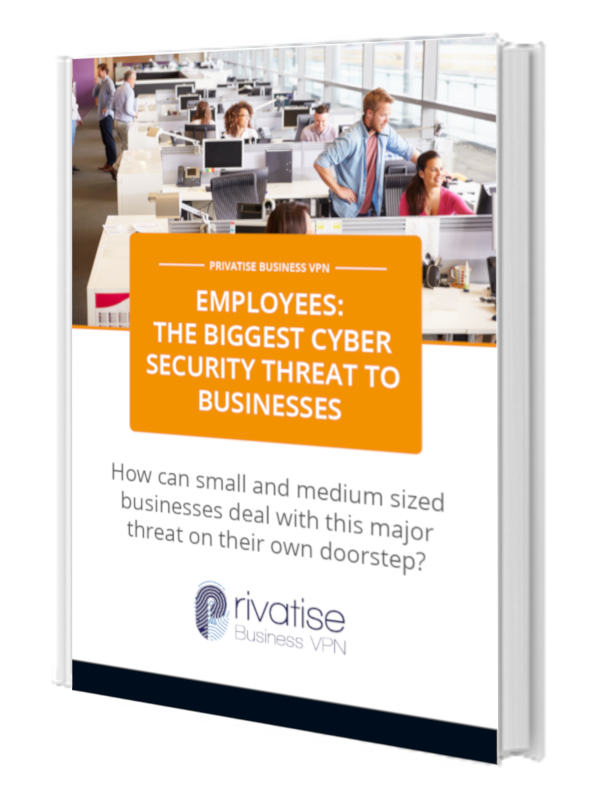The need for vpn & why it’s both a business & tech issue
Every business leader understands the need to keep their business’ sensitive information secure.
However, for the most part, cyber security has existed in a tech bubble, as a tech issue, and it is only recently that the threat faced from cyber criminals has been brought home as a commercial problem for businesses, emphasising the need for vpns.
Headlines about ransomware and malware attacks on major brands highlight the potential for data to be hacked and lost and for company reputations to be damaged if they can’t guarantee the safety of information.
In this blog we will establish why the need for a vpn is no longer just a tech issue and why businesses need to put more focus on their security and acquire a vpn tool.
Cyber security is a major issue for small and medium-sized businesses
For any small and medium sized business (SMB) there is a 50% chance they will experience a cyber security breach according to the National Cyber Security Centre. And yet despite these statistics, most SMBs are unprepared, many are not investing in cyber protection and some are unaware of the need for a vpn.
Fewer than half (49%) of SMBs plan to spend £1,000 or less on their cyber defences in the next 12 months, while almost a quarter (22%) do not know how much they will spend, according to data from a report published by insurance firm Zurich, in which it surveyed 1,000 UK SMEs.
These statistics are worrying – especially when cyber attacks cost one in five SMBs an average of £10,000 and one in ten SMBs £50,000, says Zurich, while the cost of deploying security and protection is comparatively small.
As the world becomes increasingly digital and cyber attacks continue to increase, investment in robust security is a must, but the approach to a vpn solution and security is clearly nonchalant at best. The need for a vpn is clear, so what’s the problem?
Most business vpn tools are difficult to deploy or do not provide the necessary security
The fact is that most SMBs don’t have an in-house IT department or an external IT support team they can rely on for the management of their security infrastructure. Often, the responsibility for the implementation of such solutions (and the widespread adoption of it across the business) falls to the SMB owner and the business’ in-house IT administrator.
Small business owners have enough to worry about without having to constantly worry about the state of their vpn tool, whether they’ve set it up properly and whether their staff are also making the effort to deploy the security when they’re supposed to.
The problem they have is that because current VPNs are built for consumers or big businesses, they have to be proactive in adapting systems to shoehorn into their business and they run the risk of having a system that isn’t configured properly, and no-one knows how to use.
Take a data in transit encryption solution such as a VPN for example. Most consumer-grade VPN solutions are not built with small and medium-sized businesses in mind. They often need to be paired with other security solutions to protect privacy and data communications , provide no centralised management for the authentication of devices, and you usually have no way of knowing if a user has deployed the software on their device or not.
Enterprise-grade solutions, on the other hand, are complex and out of reach for most SMBs. These solutions usually require a considerable amount of configuration to set up, as well as ongoing management to ensure performance and protection across the business.
Employees do not care about business vpn tools
Some staff just don’t recognise or appreciate the risks associated with poor security. For these employees, the addition of yet another business vpn tool is a burden and something they do not understand or care about.
And as they don’t understand or care about the need for encryption, rather than it being a boon to the business’ privacy and security, it becomes a burden as employees do not use it, deploy it or configure it correctly. These employees forget to turn the solution on; use passwords they use elsewhere; or don’t update the solution when required.
Subsequently, devices such as laptops, mobile phones and desktops can be readily accessed by cyber criminals who exploit vulnerabilities in the software or phish login details. They then access the business’ secure network without anyone knowing and proceed to monitor critical business information and siphon it.
To actually benefit from this kind of technology, employees need to be aware of the risks associated with poor security and privacy and understand how the tech helps to protect them .
Ultimately as the negative commercial consequences of being a cyber attack victim become clearer, small and medium business owners will have to realise that cyber encryption is no longer the tech bubble topic it used to be but a business threat they have to take much more seriously.
 Far too many employees are unaware of the security policies they should be following to keep data safe, posing a major security risk to businesses. Discover the importance of enforcing cyber security in your workforce today by reading our eBook.
Far too many employees are unaware of the security policies they should be following to keep data safe, posing a major security risk to businesses. Discover the importance of enforcing cyber security in your workforce today by reading our eBook.
{{cta(’58f8e28a-f0ff-4caa-8b76-247d2d55c5b0′)}}

